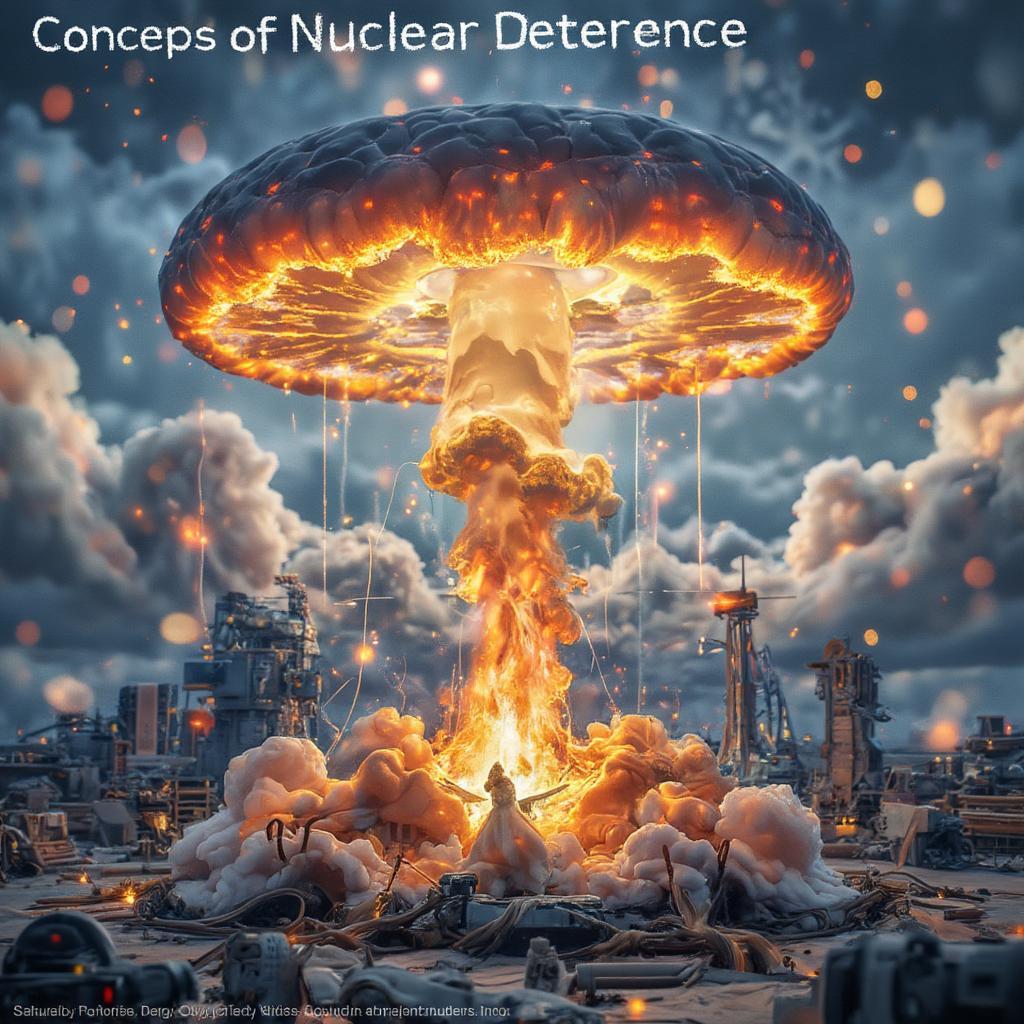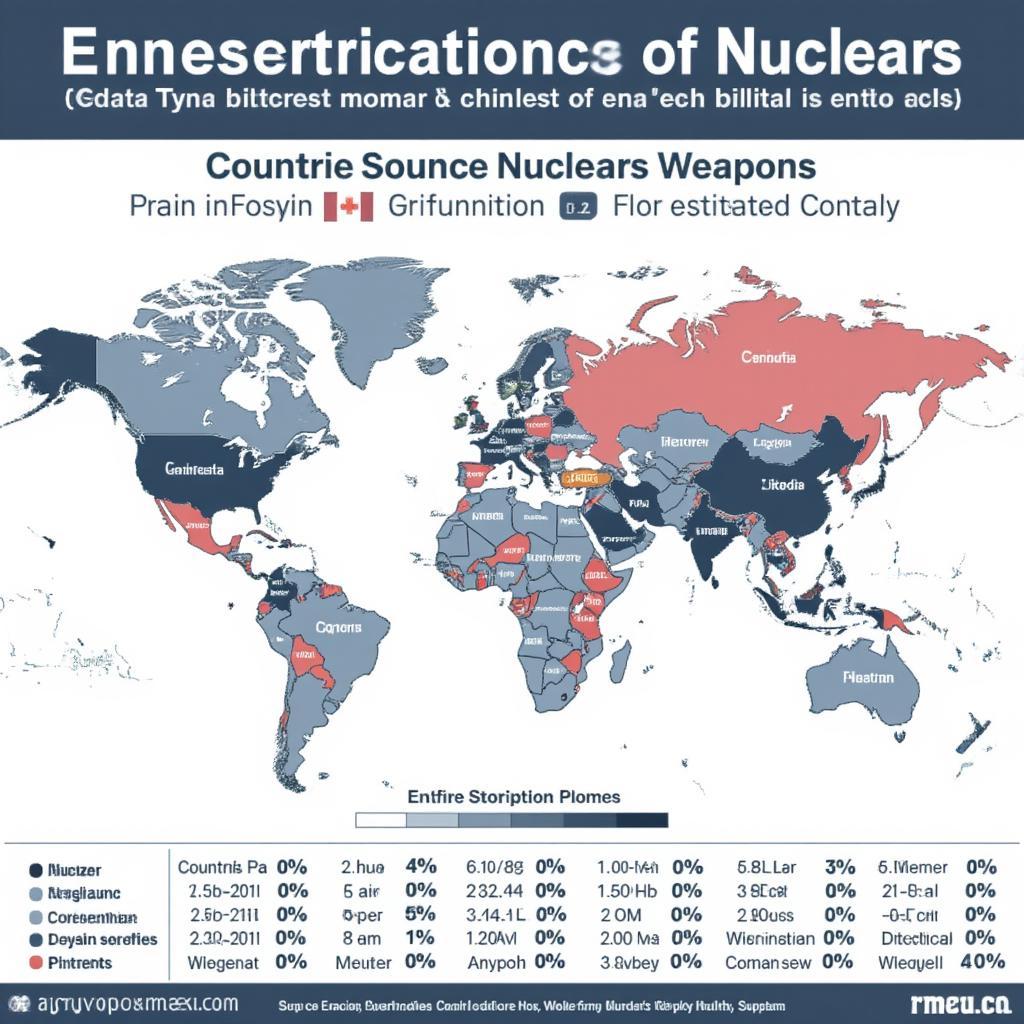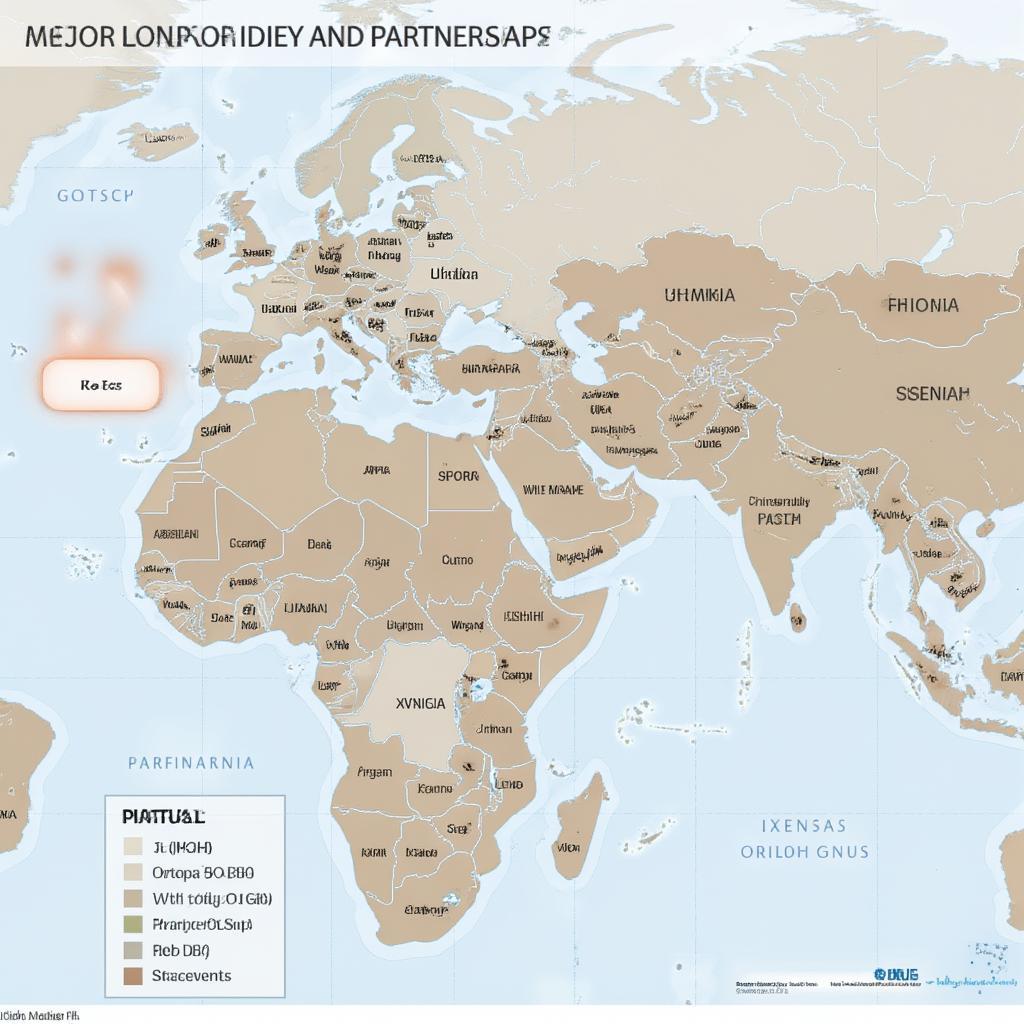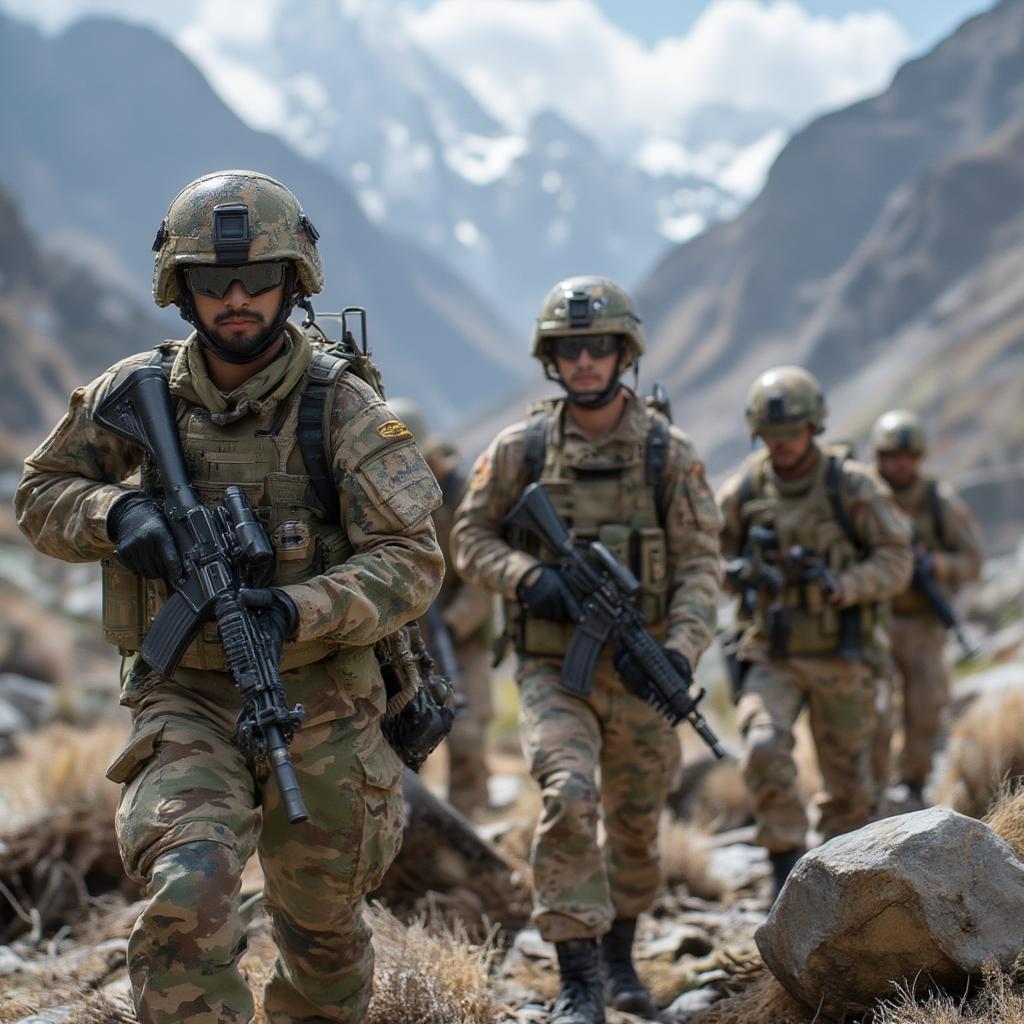Unveiling the Most Powerful Armies in the World: A Comprehensive Analysis

The quest to understand military might has always captivated global attention. When we talk about the most powerful armies in the world, we’re not just looking at troop numbers. It’s a complex equation involving technology, training, resources, and strategic capabilities. This article delves into the intricacies of military power, aiming to provide a clear understanding of what truly makes an army formidable. Let’s explore the factors contributing to military strength and the leading contenders in the global power landscape.
What factors determine a military’s power? It’s more than just the number of soldiers in uniform. Modern warfare is complex and requires a blend of different strengths. Let’s consider some key elements:
- Technological Prowess: Cutting-edge weaponry, advanced aircraft, sophisticated naval systems, and robust cyber capabilities play a crucial role. An army equipped with the latest technology has a distinct advantage.
- Personnel Training and Experience: A well-trained and experienced military is indispensable. Regular drills, realistic simulations, and combat experience contribute to the preparedness and effectiveness of troops.
- Strategic Reach and Logistics: The ability to project power across distances, deploy forces rapidly, and sustain operations is vital. A robust logistics network and strategic infrastructure are paramount.
- Economic and Industrial Strength: A strong economy can support significant defense spending, invest in research and development, and maintain a self-reliant military industry.
- Nuclear Capabilities: For some nations, possessing nuclear weapons significantly alters their military calculus and overall power projection.
Delving Deeper: Exploring the World’s Military Superpowers
Several nations consistently rank highly in lists of the most powerful armies in the world. Let’s take a closer look at some of these military giants:
- United States: The US military is often cited as the most powerful globally, backed by vast resources, cutting-edge technology, and extensive global reach. Their defense budget dwarfs that of most other nations, allowing for significant investment in research and development. The US also possesses a very strong naval force, a huge airforce, and a well funded, powerful army.
- China: The People’s Liberation Army (PLA) has undergone rapid modernization, emphasizing technology and cyber warfare. China’s military has grown rapidly in the last few decades. The PLA also has a large number of active and reserve personnel.
- Russia: Russia’s military might is built on a mix of legacy systems and modern weaponry. They are known for their vast land forces and powerful submarine fleet. Russia has shown a propensity to use military action for its political goals, making them a significant player in the global military stage.
- India: India possesses a large and diverse military, equipped with a mix of indigenous and imported technology. They are also actively developing their own defense industry and modernizing their military. Their standing army is one of the largest in the world.
“Military strength is not solely about equipment; it’s about the people who wield it, the strategy behind its deployment, and the nation’s ability to sustain it,” comments Dr. Alistair Hayes, a strategic defense analyst at the Global Security Institute.
How Are Military Powers Ranked?
Ranking the most powerful armies in the world isn’t a simple exercise. There are several ranking systems used to try and compare countries’ military strength, such as:
- Global Firepower Index: This index considers more than 60 individual factors to determine the military power of nations, including manpower, equipment, resources, finances, and geography. It assigns a Power Index score, with 0.0000 being the perfect score.
- Stockholm International Peace Research Institute (SIPRI): SIPRI focuses on data related to military expenditure and arms trade, providing a valuable insight into global military spending trends. Their data points towards nations with the largest military budgets.
- Individual Assessments: Independent military analysts often conduct their own assessments, taking into account various factors and relying on a combination of open-source intelligence and expert knowledge. Their rankings may differ from others, reflecting the complexity of determining military power.
What About Emerging Military Powers?
Beyond the traditional military superpowers, several nations are rapidly strengthening their military capabilities. These emerging powers are reshaping the global military landscape:
- South Korea: South Korea’s military has grown into a modern and technologically advanced force in response to threats from its northern neighbor.
- Japan: While restricted by its constitution, Japan has a highly sophisticated Self-Defense Force, which is actively participating in international operations and is equipped with modern technology.
- Turkey: Turkey is increasing its military strength and actively projecting its influence in the eastern Mediterranean and other regions. They have been focusing on developing their own defense capabilities and increasing their autonomy.
- Brazil: With a strong economy and growing military budget, Brazil is a significant military power in Latin America. They are also working to modernize their military equipment and expand their training program.
“The rise of emerging military powers is a testament to the changing global order, where different nations are developing their defense capabilities and trying to assert themselves on the world stage,” says Dr. Eleanor Vance, a professor of political science at the International Relations Institute.
How do Technological Advancements Impact Military Strength?
Technological innovation is revolutionizing warfare. The following areas have had a particularly large impact on the most powerful armies in the world:
- Cyber Warfare: The ability to launch cyberattacks on a nation’s infrastructure is a critical element of modern warfare. It allows for a disruptive influence without a physical military invasion.
- Artificial Intelligence: AI is being integrated into military systems, from autonomous vehicles to predictive analytics, enhancing the efficiency and effectiveness of military operations.
- Hypersonic Weapons: These advanced weapons travel at extremely high speeds, making them difficult to intercept and a game changer in the realm of strategic weaponry.
- Drones: Unmanned aerial vehicles play a crucial role in reconnaissance, surveillance, and targeted strikes. They offer a cost-effective way to monitor conflict zones.
These technologies create new challenges for modern militaries and have shifted the nature of conflict in the 21st century. Nations that can effectively harness these technologies will have a significant military advantage.
How Does Training and Experience Contribute to Military Power?
The best technology in the world is useless if the people using it are not adequately trained. Military personnel must:
- Undergo rigorous training: Including physical training, tactical drills, and simulations of combat scenarios. The aim is to prepare soldiers for the stress of active combat.
- Have combat experience: Operational experience offers invaluable lessons, allowing soldiers to adapt to changing situations, refine their skills, and improve their decision-making.
- Develop leadership skills: Effective leadership is crucial in directing troops and motivating soldiers. Good leadership can make the difference between success and failure in combat.
- Foster adaptability: Modern militaries must be adaptive, able to adjust to new technology, new strategies, and changing scenarios.
A strong military is not just about equipment; it is about the people who use it and the experience and skills they bring to the conflict. The most powerful armies in the world have consistently invested heavily in this area. To further your understanding, you might explore resources about armies of the world, which delve into different military strategies.
What Role Does a Strong Economy Play in Military Power?
A robust economy is a cornerstone of military might. Military spending requires a strong economic foundation. A healthy national economy provides a variety of vital advantages:
- Supports defense spending: A strong economy allows for higher defense budgets, enabling nations to procure advanced weaponry and invest in training.
- Funds R&D: A nation’s economy funds research and development programs that push the boundaries of military technology and innovation.
- Maintains industrial capacity: The nation can maintain and strengthen its military-industrial complex, producing its own weapons and equipment.
- Sustains military operations: Economic might allows for large and continuous military operations. It allows nations to project their power and maintain their presence globally.
Nations with strong economies have the financial wherewithal to maintain a powerful military and project their influence on the global stage. Understanding the relationship between the economy and the military is vital for assessing a nation’s overall power. You can delve deeper into historical data regarding military strength with this link most powerful armies in the world 2022.
How Do Nuclear Capabilities Change the Balance of Power?
Nuclear weapons significantly alter the global balance of power. Possessing a nuclear arsenal changes how nations perceive themselves and how they are perceived by others. This power shift impacts the way nations interact on the global stage and brings the following points into consideration:
- Deterrent Effect: Nuclear weapons act as a deterrent, discouraging other nations from attacking. This is based on the concept of Mutually Assured Destruction (MAD), the idea that nuclear war will be mutually destructive for all parties involved.
- Strategic Advantage: Nations that have nuclear weapons tend to hold greater strategic influence on the global stage and have a seat at the table in important international discussions.
- Increased Security: Some argue that nuclear weapons enhance a nation’s security by making an attack on them unlikely.
- Global Instability: However, nuclear proliferation increases the risk of nuclear conflict and global instability.
“The possession of nuclear weapons introduces a unique dynamic into global military power. While they are a deterrent, they also present significant risks,” adds General James Bradford (Ret.), a former military commander and defense consultant.

Why is it Crucial to Continuously Monitor Global Military Power?
Monitoring global military power dynamics is vital for:
- Maintaining Peace and Stability: It allows for early warnings of potential conflicts and promotes peaceful diplomatic resolutions. By assessing a nation’s capability, other nations can anticipate their actions.
- Promoting Transparency: Monitoring can encourage transparency among nations, reducing the risk of military build-ups going unnoticed and reducing the chance of surprise attacks.
- Informing Defense Policies: Regular assessment of global military power allows nations to adapt their own defense policies and prioritize the resources they need to maintain their security.
- Ensuring Global Security: By understanding military power dynamics, nations can better cooperate to address common security threats and promote global security.
Staying informed about the most powerful armies in the world is essential for those interested in global politics, military history, and strategic studies. Keeping track of the changes over time can give you a better picture of the global balance of power.
In conclusion, determining the most powerful armies in the world is a complex process that goes beyond just the number of troops. It involves a wide array of factors, from cutting-edge technology and well-trained personnel to a robust economy and strategic planning. By looking at these various aspects, we can gain a more complete understanding of what truly makes a military force powerful. Keep an eye on resources like top 10 strongest army in the world 2021 and most powerful armies 2022 for up-to-date rankings and insightful commentary. If you want a quick summary, search for rank army in world for a quick overview. Continued study and research will allow you to stay informed about how these factors are impacting global military power dynamics.




